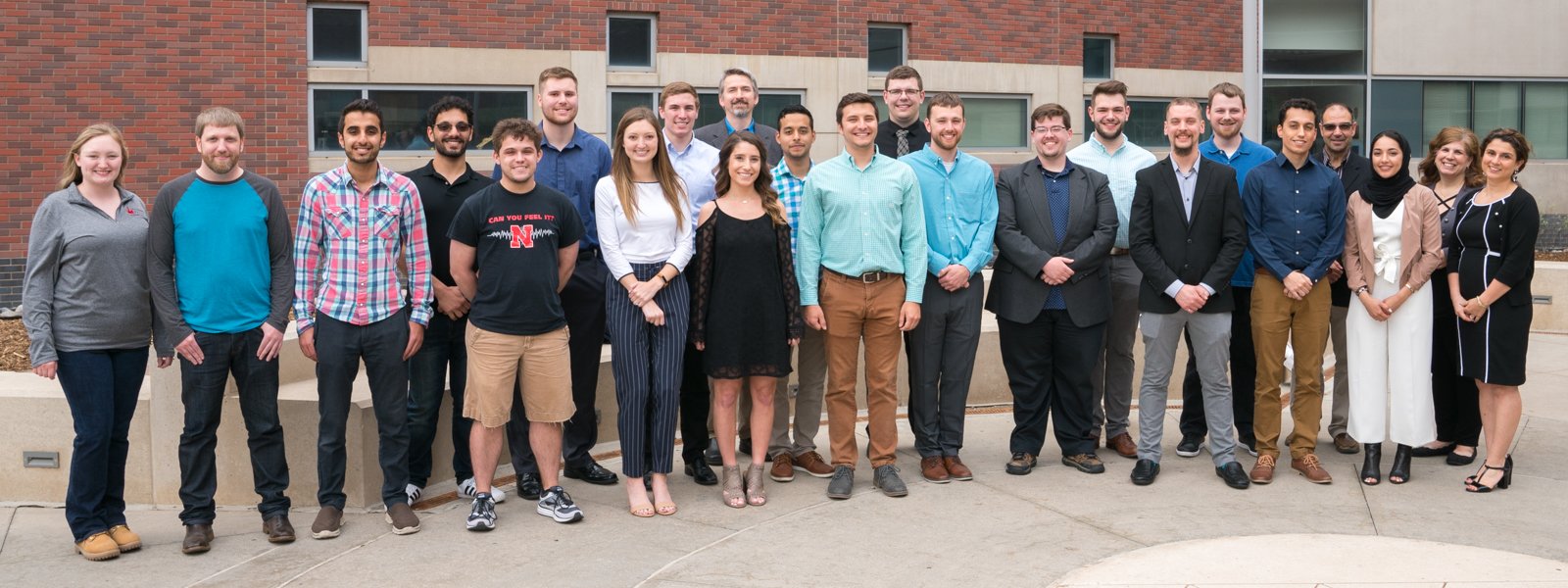Master of Architectural Engineering
It is highly recommended for students who complete the Bachelor of Science degree in architectural engineering, continue with a one-year Master of Architectural Engineering (MAE) degree. During this fifth year, students continue to develop depth in their selected option area (1) building structural systems, (2) building mechanical and acoustical systems, or (3) building lighting and electrical systems and are also introduced to professional practice.
The MAE curriculum is designed to give students the opportunity to demonstrate their mastery of a technical topic through a two-semester Graduate Project course sequence (AE 8010 and 8020) that culminates in a written MAE report. Students will also take AE 8090 “AE Interdisciplinary Team Design Project” in which they are assigned to be a member of an interdisciplinary team where they develop and design the structural, mechanical/acoustical, or lighting/electrical systems for an actual building, from programming through construction documents. All student teams are mentored by a team of industry design professionals.
The School’s five-year Architectural Engineering (AE) program encompassing the Bachelor of Science degree followed by the Master of Architectural Engineering degree is accredited by the Engineering Accreditation Commission of ABET (Accreditation Board for Engineering and Technology), http://www.abet.org.
Areas of Emphasis

Structural Design
Every building must be built to withstand the force of gravity, weather, time, even natural disasters. Architectural engineers research, analyze, and design structural systems to ensure our safety and comfort. They determine the materials and techniques needed to creatively transform a big idea into reality. Our program merges innovative coursework with guidance from outstanding structural faculty. Students gain hands-on experience in our Structural Research Laboratory, featuring over 5,000 square feet of floor space to accommodate various testing needs.

Electrical/Lighting
Buildings need electric power, communications, and light. Architectural engineers plan and design smart buildings that allow us to efficiently use energy and communicate with the world. They develop methods to illuminate a building by balancing considerations of cost, aesthetics and effects on human behavior and productivity. They are concerned with energy efficiency and sustainable design practices. Students gain hands-on experience in our Lighting and Electrical Systems Laboratory, featuring electrical panels and lighting control boards.

Mechanical/Acoustics
Buildings require controlled environments to optimize efficiency and productivity. Architectural engineers plan and design heating, ventilation, air conditioning, plumbing, and acoustical systems—all the systems that improve our quality of life. They are concerned with energy efficiency and sustainable design practices. Students gain hands-on experience in our Building Systems Laboratory, featuring customizable settings to affect change and observe outcomes.

